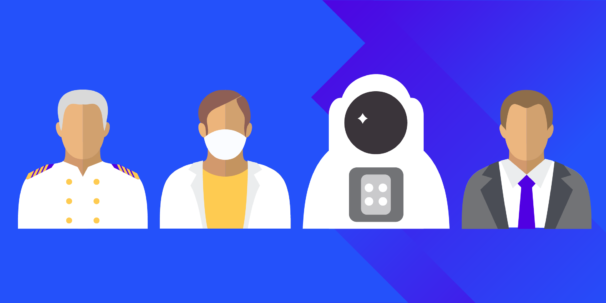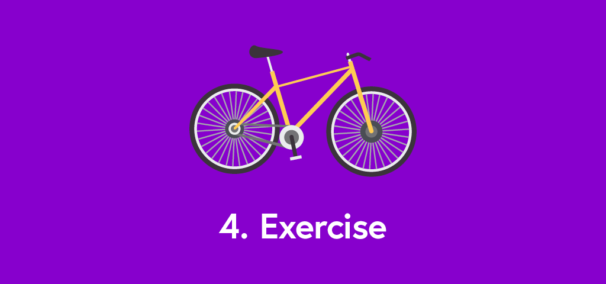How to survive self-isolation – from people who’ve done it
Learn from people who've spent long spells in isolation how they managed their time alone – and how you can get through coronavirus quarantine.

When Indian Prime Minister Narendra Modi announced that he was ordering his country into lockdown on 25 March, he single-handedly doubled the number of people globally who had been placed under similar ‘stay at home’ orders in response to the coronavirus pandemic.
At this point, ‘lockdown’ is turning into one the greatest mass events in human history – more people are experiencing the effects of quarantine than the combined number who participated in both World Wars, to give a sense of scale.
While the health crisis is at the forefront of people’s minds – and the economic crisis looms in the background – the hidden toll of global lockdown may be a psychological one. Extended periods of isolation can be detrimental to mental wellbeing, leading to potential bouts of anxiety and depression.
However, while social distancing is a term new to many of us, for some isolation has been a way of life long before COVID-19 turned our world upside down, and limited our horizons to the corners of our own homes.
We’ve found some tips for getting through isolation from the experts – people who’ve spent years in confined spaces and lived to tell the tale.
These career survivalists know how to make living alone and apart from others work, while maintaining mental and physical wellbeing – and maybe even coming out the other side a little bit stronger.
Astronaut Scott Kelly spent a year living on the International Space Station – one of the most cramped, enclosed, and isolated work environments anyone could experience.
He told the New York Times that having a regular schedule was key for him: “On the space station, my time was scheduled tightly, from the moment I woke up to when I went to sleep…You will find maintaining a plan will help you and your family adjust to a different work and home life environment.”
It’s a sentiment echoed by Beth Healey, a British doctor who spent 14 months working at the Concordia inland research station on the Antarctic plateau for the European Space Agency.
She told the i newspaper that, “we don’t know how long we’re going to be isolated for, but even without knowing, people can still work towards the end of the day, the end of the week, ticking them off in their calendar.” She says we should “focus on what [we] can control. Getting up, doing yoga, maintaining continuity.”
John Bailey – a former sailor in the British Submarine Service – agrees. He posted on Twitter about the importance of routine when you’re confined for long periods: “Make a routine now, test it then write it down & stick to it. Divide your day up in to work (if home working) rest, exercise, meals, hobbies, etc. Do the same for kids.”
“Social isolation measures have severe consequences for mental health, particularly for those who live alone, and even more so if they have pre-existing health problems.” says Dan Auerbach from Associated Psychologists Sydney noted, “Our service has seen a definite increase in people seeking counselling for mental health disorders which they attribute to living alone or being isolated from their family and friends as a result of Covid. Many are mentioning symptoms of depression or low mood.”
Examine how to get your own work-life balance right with Coventry’s University’s new short course on working from home.
One of the hardest things for people to cope with at the moment is a feeling of uncertainty – not knowing when lockdown will end, and when (or if) life will return to normal.
Healey thinks that preparing yourself for ‘lockdown fatigue’ is important. At the beginning, there might be novelty, or even excitement about the change to your living conditions. But by the ‘third quarter’ of a spell of isolation people start to get restless: “People go into psychological hibernation, become fatigued and social interaction deteriorates”.
A deeper issue here might be a sense of grief – a feeling of loss for a whole way of life that seems to have disappeared overnight.
David Kessler (“the world’s foremost expert on grief”) counselled the Harvard Business Review that, “I don’t think we’ve collectively lost our sense of general safety like this. Individually or as smaller groups, people have felt this. But all together, this is new. We are grieving on a micro and a macro level.”
Kessler argues that the stages of grief “aren’t linear…There’s denial, which we say a lot of early on: This virus won’t affect us. There’s anger: You’re making me stay home and taking away my activities. There’s bargaining: Okay, if I social distance for two weeks everything will be better, right? There’s sadness: I don’t know when this will end. And finally there’s acceptance. This is happening; I have to figure out how to proceed.
Acceptance, for Kessler, “is where the power lies. We find control in acceptance. I can wash my hands. I can keep a safe distance. I can learn how to work virtually.”
For more on virtual working, the University of Leeds and the Institute of Coding have a new short course exploring how to collaborate online.
One way of managing the reality of long-term isolation is to stay in contact with family and friends, or, as Bailey puts it: “keep in touch with your people.”
Kelly says that, in spite of how busy he was on the ISS, he “never missed the chance to have a videoconference with family and friends. Scientists have found that isolation is damaging not only to our mental health, but to our physical health as well, especially our immune systems.”
Setting regular social meetups online can keep a sense of fun and normalcy, letting you share your thoughts and feelings along the way.
For Healey, staying social was key to overcoming ‘third-quarter’ blues. “Getting dates in the diary during that period is going to be the most useful: a pirate night with the kids; date nights with your partner; a Skype pub night with friends.”
For more on how to have fun from home during lockdown, check out our blog for great social ideas.
For those of us who don’t fall into the category of being most vulnerable to the virus, going outside for daily exercise is an important ritual to maintain. Even just going for a walk can help improve mood and lets us reconnect with nature.
Kelly rightly argues that, “research has shown that spending time in nature is beneficial for our mental and physical health, as is exercise.” He says that we “don’t need to work out two and a half hours a day, as astronauts on the space station do, but getting moving once a day should be part of your quarantine schedule (just stay at least six feet away from others).”
Bailey says that 20-30 minutes a day of some sort of exercise is “a minimum… It’s a natural antidepressant, breaks up the day and keeps you healthy. Get outside when able.”
Learn about the beneficial medicinal effects of exercise in this short course from Trinity College Dublin.
Having a project or focus for self-improvement can help you take your mind off matters, and lets you feel like you’re developing yourself in spite of things.
Kelly says it’s something all astronauts do to pass the time: “You can practice an instrument (I just bought a digital guitar trainer online), try a craft, or make some art. Astronauts take time for all of these while in space.”
Not only is it important to carve out some private time to work on a hobby, but it’s also crucial to maintain a sense of private space – especially if you’re at home with your family or multiple flatmates all day.
Bailey says we should “make a dedicated private time / place in the routine. Even if you timeshare the front room get everyone a couple of hours alone. Do whatever you want…whatever gets you through.”
For Healey, “it’s important to be mindful of each other’s space. On Concordia, we were prohibited from going into peoples’ bedrooms, as that was considered private space, and it’s important to have that boundary, that retreat – to avoid claustrophobia. That applies even to kids: build them a little den which is their space and theirs alone.”
If you’d like to take up a new hobby, the University of Sheffield can teach you how to write your first song; FutureLearn also has a wide range of language courses to explore.
It’s easy for us to feel down about the current situation – feeling anxious or depressed is a natural and normal response to an uncertain social and political situation.
Nevertheless, it’s also important not to catastrophise. Just as the worst-case scenario might happen, so might the best-case.
And for those of us lucky enough to be left with some extra spare time thanks to quarantine, this has potential to be a valuable period of reflection. Prisoner Keith LaMar told Mother Jones that, “when you’re thrown upon yourself, you realize you are more equipped than you realised. A lot of the system keeps us from realizing our own power. It’s a good opportunity for people to tap into that.”
Chris Hadfield, who spent 6 months aboard the ISS, counsels (via The Face) to “read, paint, build, repair, think, learn, play, cook. You can come out of this better educated, stronger and more appreciative”.
Astronauts call this the “the overview effect”. Healey explains: “It’s when they go up into space, look down on the world and get a different perspective. In the current situation, I’d urge people to do the same: you don’t necessarily need to go to space to get that fresh perspective.”
For submarinist Bailey, “like all other patrols, this one will end…Bring your world closer, focus on little things that you enjoy & make plans for the future. At least you should have a window!”
To learn more about how mindfulness can help wellbeing, explore the science of mindfulness with Deakin University’s new six-week course.
Discover what lockdown and quarantine mean – and whether they work.










